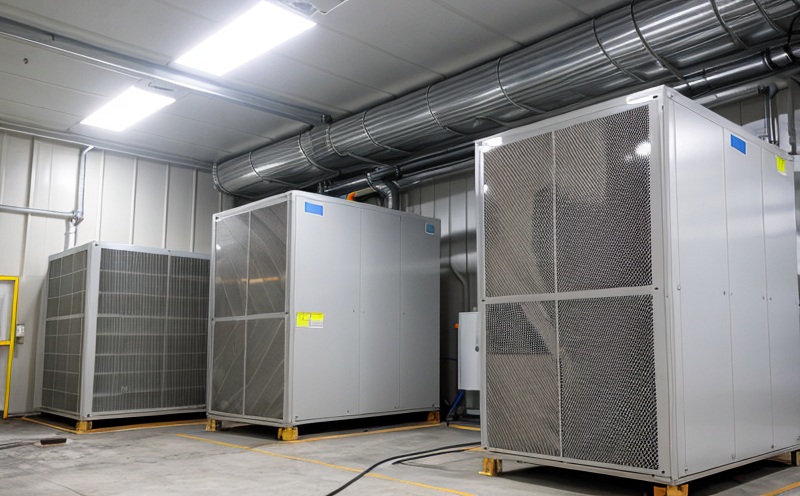Thermal Efficiency Evaluation for Air Handling Units
Thermal Efficiency Evaluation for Air Handling Units Unlocking Energy Savings and Sustainability
In todays fast-paced business world, companies are constantly seeking ways to reduce energy consumption, lower operational costs, and enhance their environmental sustainability. One often-overlooked area of improvement lies in the optimization of air handling units (AHUs), a crucial component in many industrial settings. Thermal Efficiency Evaluation for Air Handling Units is a cutting-edge laboratory service provided by Eurolab that empowers businesses to unlock significant energy savings, reduce emissions, and enhance their bottom line.
In this article, we will delve into the world of thermal efficiency evaluation, exploring its importance, benefits, and how it can revolutionize your companys operations. Whether youre a facility manager, sustainability officer, or CEO, understanding the value of thermal efficiency evaluation is essential for any organization aiming to reduce energy consumption and promote environmental responsibility.
What is Thermal Efficiency Evaluation for Air Handling Units?
Thermal Efficiency Evaluation for AHUs involves a comprehensive analysis of an air handling units performance, assessing its ability to heat or cool air efficiently. This laboratory service evaluates the overall thermal efficiency of the unit, including factors such as
Energy consumption
Air temperature control
Pressure drop across filters and coils
Cooling tower performance (if applicable)
By conducting a thorough examination of these parameters, Eurolabs expert technicians can identify areas for improvement, providing actionable recommendations to optimize AHU performance.
Advantages of Thermal Efficiency Evaluation for Air Handling Units
Incorporating thermal efficiency evaluation into your maintenance routine offers numerous benefits, including
Energy Savings Identify opportunities to reduce energy consumption and lower operational costs.
Improved System Reliability Extend equipment lifespan by reducing wear and tear on AHUs.
Enhanced Indoor Air Quality Optimize air handling unit performance to ensure consistent temperature control and minimize the risk of Legionnaires disease or other airborne pathogens.
Compliance with Regulations Ensure compliance with energy efficiency regulations and industry standards.
Competitive Advantage Demonstrate a commitment to sustainability and reduce your environmental footprint.
Key Benefits
Reduced Energy Bills Minimize energy consumption by identifying areas for improvement in AHU performance.
Increased Equipment Life Extend equipment lifespan by reducing wear and tear on AHUs.
Better Indoor Air Quality Optimize air handling unit performance to ensure consistent temperature control.
Improved System Reliability Reduce downtime and extend the life of your AHUs.
Enhanced Sustainability Demonstrate a commitment to environmental responsibility.
How Does Thermal Efficiency Evaluation Work?
The thermal efficiency evaluation process involves several stages, including
Equipment Inspection A thorough visual inspection of the air handling unit is conducted to identify any potential issues or areas for improvement.
Data Collection Eurolabs expert technicians collect data on AHU performance, including energy consumption, airflow rates, and pressure drop across filters and coils.
Analysis and Reporting The collected data is analyzed using specialized software and equipment, providing a comprehensive report outlining opportunities for improvement.
Recommendations and Implementation Based on the findings, Eurolab provides actionable recommendations to optimize AHU performance, which can be implemented by in-house staff or Eurolabs technicians.
QA Section
Q What is the purpose of thermal efficiency evaluation?
A Thermal efficiency evaluation identifies areas for improvement in air handling unit performance, enabling businesses to reduce energy consumption, lower operational costs, and enhance their environmental sustainability.
Q How often should I conduct thermal efficiency evaluations?
A Regular thermal efficiency evaluations (e.g., every 6-12 months) are recommended to ensure optimal AHU performance and detect any potential issues before they become major problems.
Q Can I conduct thermal efficiency evaluations in-house?
A While some basic assessments can be performed in-house, a comprehensive thermal efficiency evaluation requires specialized equipment and expertise. Eurolabs expert technicians have the necessary knowledge and tools to provide accurate results.
Q What kind of support does Eurolab offer after the evaluation is complete?
A Eurolab provides ongoing support and recommendations for implementing improvements identified during the thermal efficiency evaluation process. Their team can also assist with implementation and provide training for in-house staff.
Conclusion
Thermal Efficiency Evaluation for Air Handling Units is a critical laboratory service that enables businesses to optimize energy consumption, reduce operational costs, and enhance their environmental sustainability. By understanding the importance of this service and incorporating it into your maintenance routine, you can unlock significant benefits, including reduced energy bills, increased equipment life, and improved system reliability.
At Eurolab, our team of expert technicians is dedicated to providing comprehensive thermal efficiency evaluations that empower businesses to achieve their sustainability goals. Dont let inefficient air handling units hinder your companys progress contact us today to learn more about how thermal efficiency evaluation can benefit your organization.




